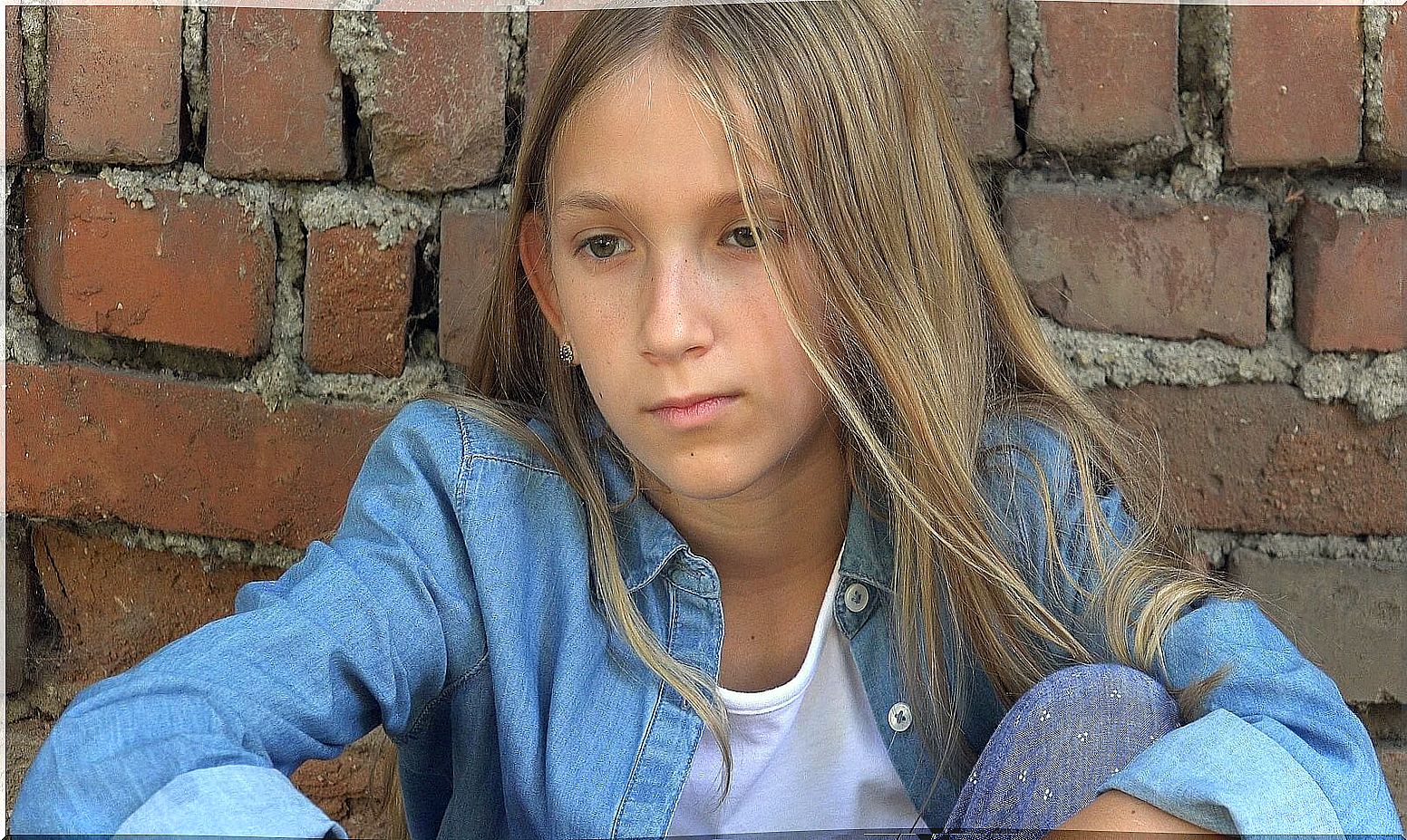Emotional Debt In Adolescents: How Can It Affect Them?

The youngest children enjoy a pure mind and free of conditioning. However, self-conscious emotions do not take long to appear. Thus, when they reach adolescence, young people can already carry a significant amount of guilt, shame and regret that prevents them from being happy. These are the so-called emotional debts.
Human beings spend a large part of our time regretting what we did or did not do, wishing we had acted differently. Unfortunately, the experiences of adolescence and the emotional intensity with which they are experienced lead many young people to torment themselves about their own behavior.
There is no worse judge than oneself and, therefore, we must prevent minors from falling into the tendency to judge, blame and punish themselves. They must take responsibility for their actions, yes, but we must help them to do so in a healthy and constructive way. And constantly feeling in debt is not the best way.

What are emotional debts?
Imagine that a friend lent you a large sum of money and you have not yet had a chance to repay it. How does that financial debt make you feel? You may feel guilty or ashamed, uncomfortable, and eager to pay off the outstanding bill.
The same is true with emotional debt. These arise when we feel that we owe something to someone for what they gave us, for what we promised or for the damage we caused them. In the case of adolescents, there may be various situations that lead them to feel in this type of commitment.
Emotional Debt in Teens
Here are some of the most common emotional debts during adolescence.
With parents
The debts that are contracted with the parents on an emotional level begin from the moment we are born, since they are the ones who give us life. Subsequently, they take care of us, feed, comfort and accompany us and, therefore, young people may feel that they must reciprocate all that time and love invested in them.
This can lead them to suppress their own wishes and opinions in order to please their parents. For example, when selecting their subjects, their extracurricular activities or their friends. This feeling of debt can cause them to choose what their parents want and not what they themselves prefer.
Likewise, they may feel guilty and inadequate if they do not meet the expectations that their parents have for them. If, for example, they are not as academically successful, as athletic, or as outgoing as their parents would like.
With his equals
In adolescence, complicated situations can arise with friends and colleagues that lead young people to feel tied or guilty for their behaviors. As you mature, your relationship with certain childhood friends may grow apart. Minors may feel compelled to please others by being accepted, or even early love disappointments may take place.
In all of the above cases, the adolescent may feel compelled to act in a certain way or regretted for not having acted in another way. Thinking that you have abandoned a lifelong friend or broken the heart of your first partner can cause you great suffering.
With themselves
Also, emotional debt can be incurred with yourself. For example, if your child loved soccer as a youngster and has already completely abandoned the sport, they may think they are betraying the child that they were. Or, if you perform certain behaviors to fit in with a group, you may feel like you are falling short of your own values.

Help your child to get rid of emotional debt
Feeling guilty, ashamed, or compelled to act in a certain way can be emotionally draining. Therefore, it is important to remind our children that they are free to act, to change their minds, and to follow their own wishes.
It begins by releasing him of any emotional debt he feels he owes to you ; let him choose his own path and avoid emotional manipulation. And, on the other hand, help him settle the rest of the pending accounts.
Many times an apology or a sincere explanation is enough to release what keeps you tied to others. But, when this is not possible, a symbolic exercise such as writing a letter (even if it is never delivered) can serve the same function.
The important thing is to explain to them that taking responsibility for their actions is not the same as feeling guilty. And that, finally, his only commitment has to be with his own happiness.










